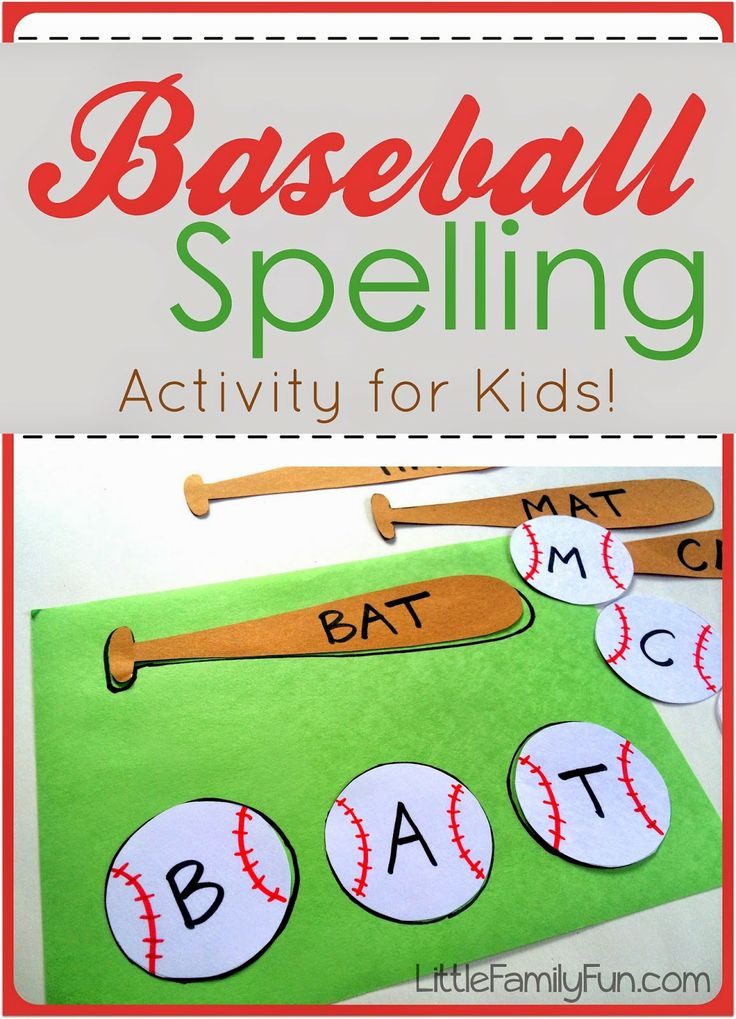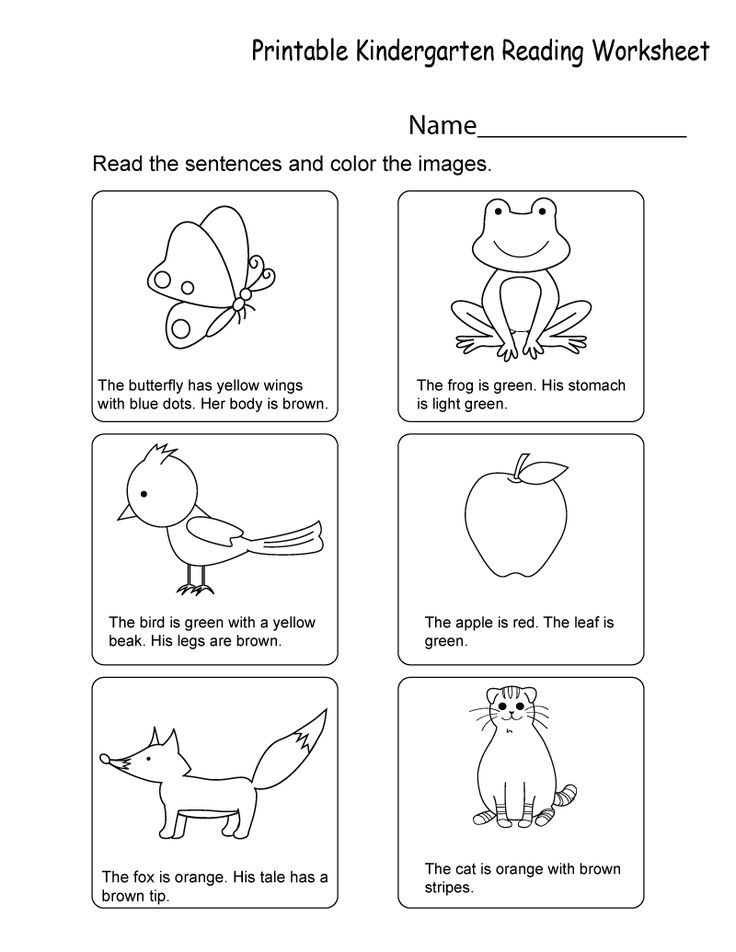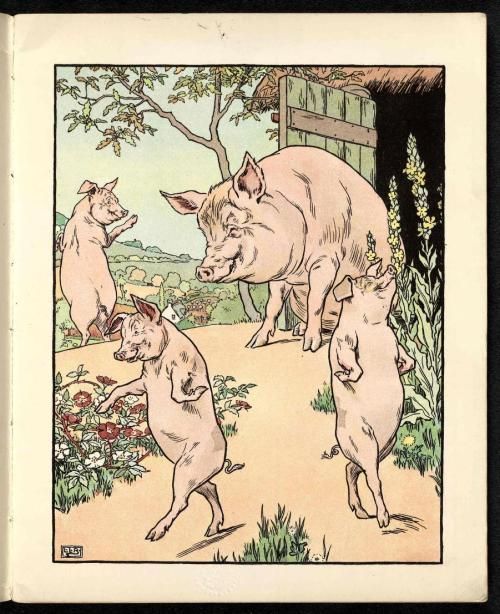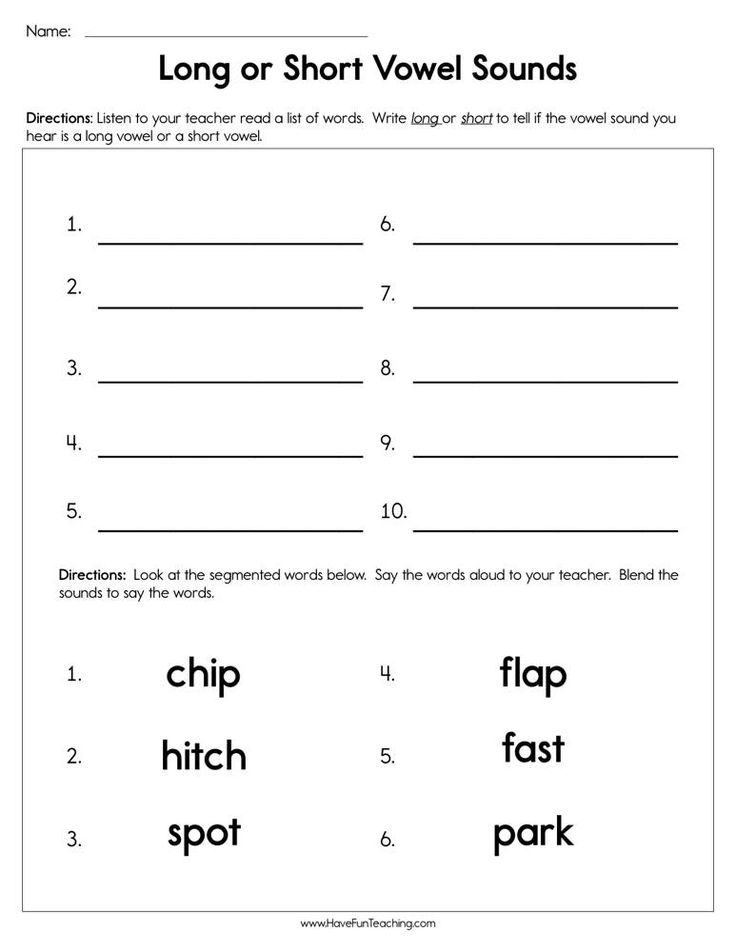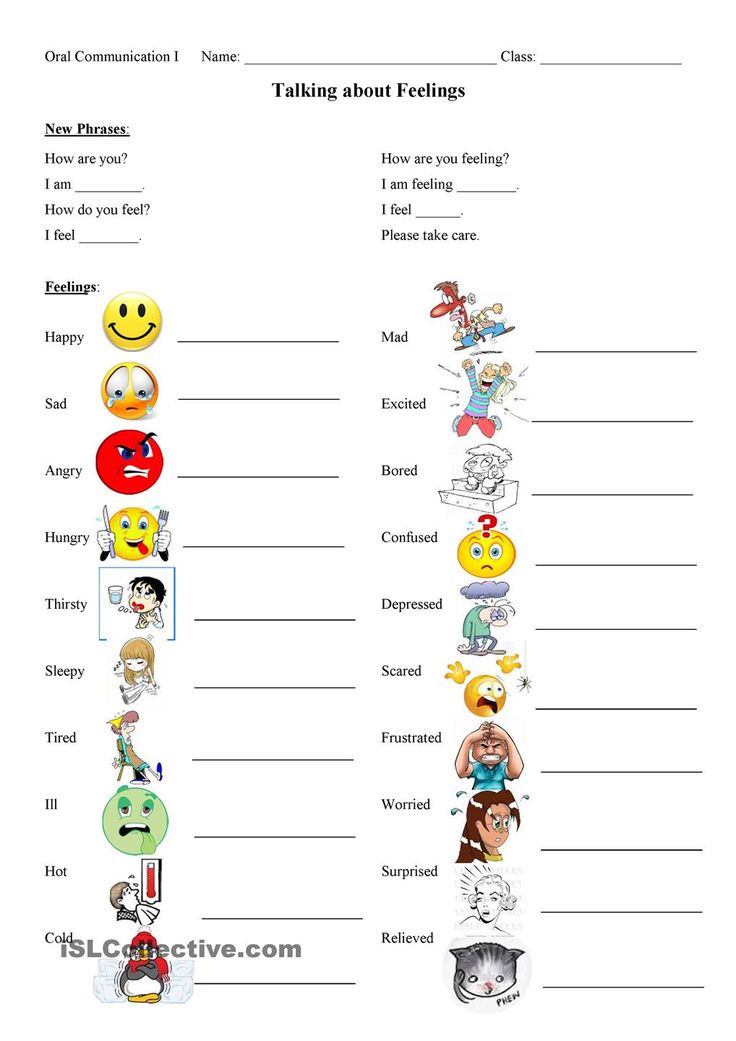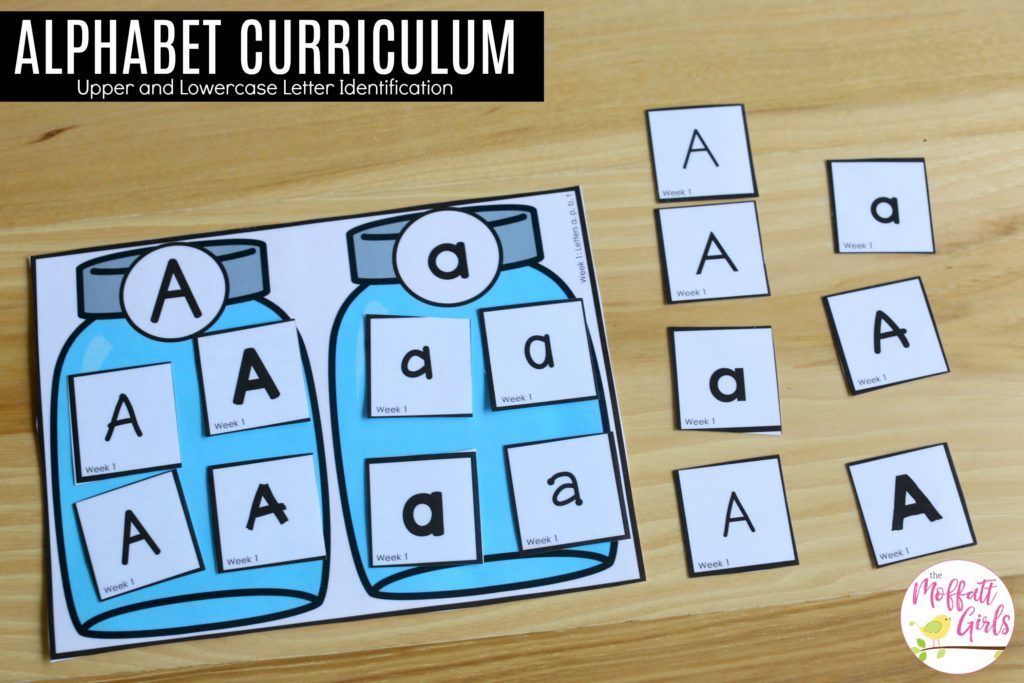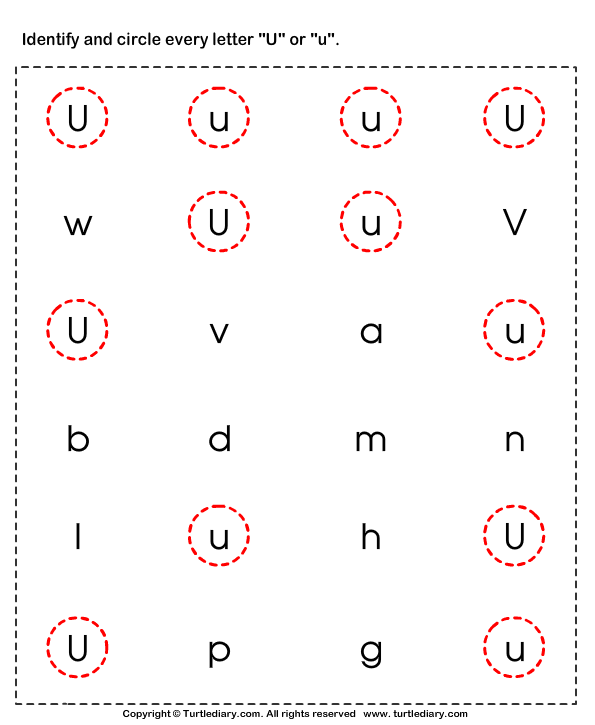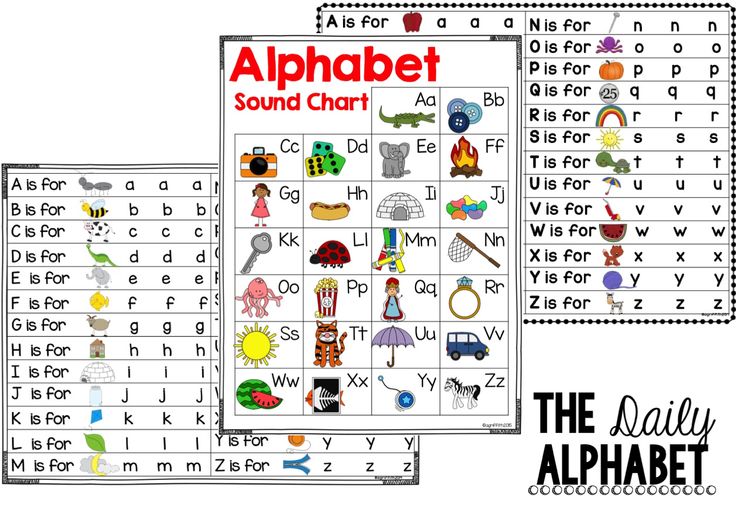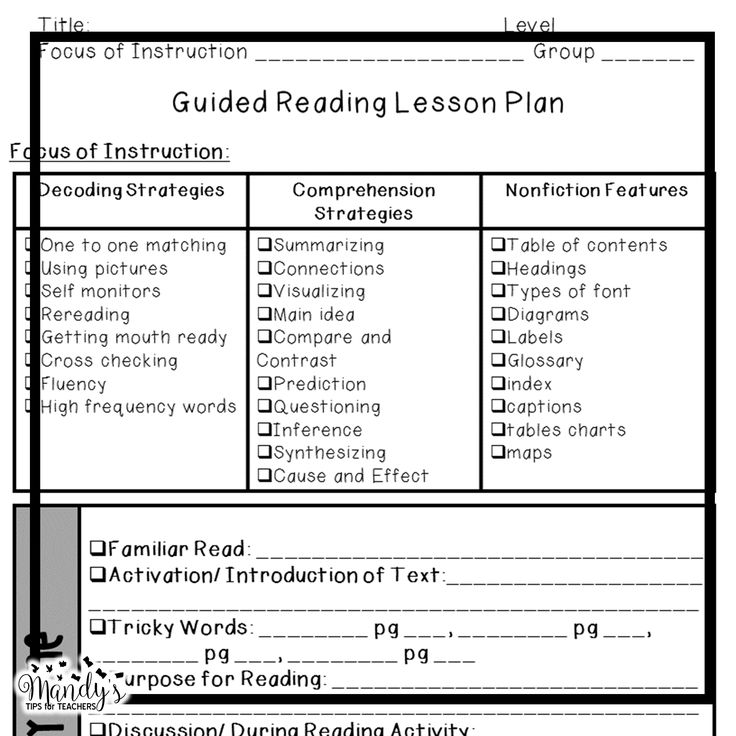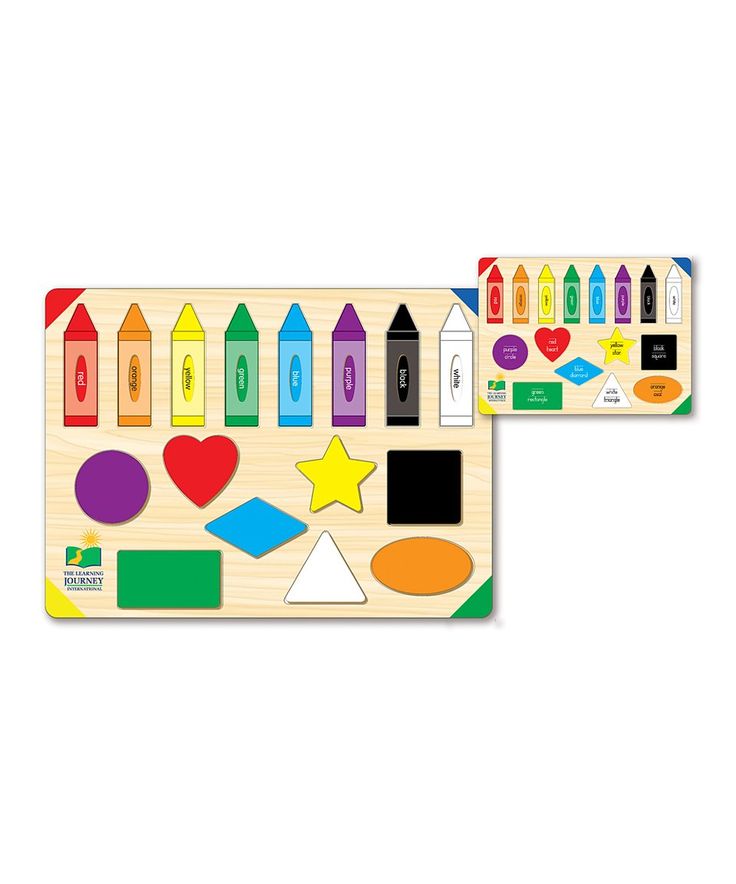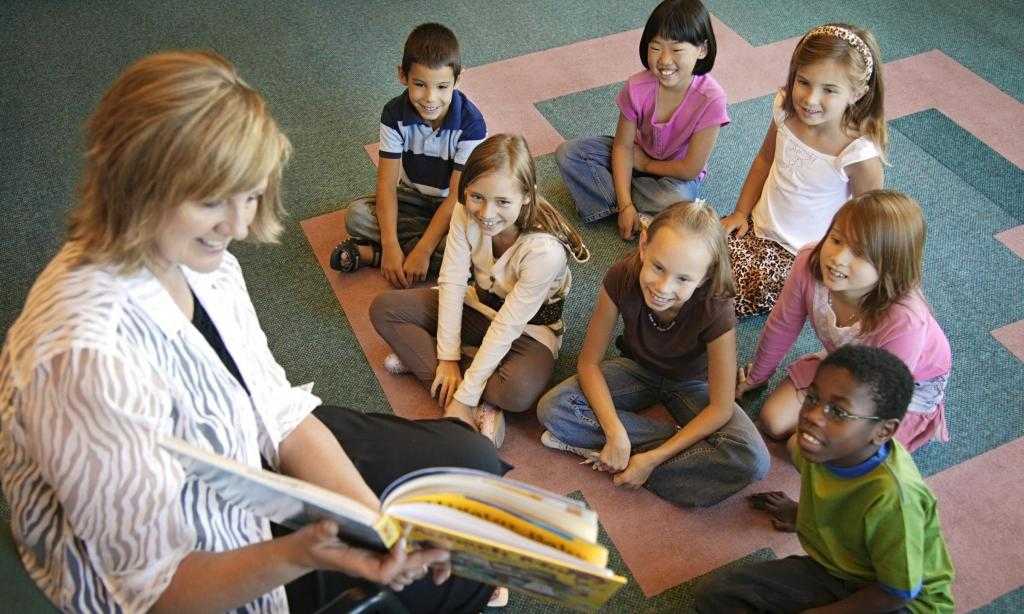Spelling classroom games
Classroom Spelling Games for Grades 2-6
Looking for an engaging spelling game to play with your students? Look no further! We’ve collected together a fun list of classroom spelling games suitable for students in grades two to six.
1. Buzz Off Spelling Game
Have students stand in a circle. Choose a person to start and say the word to spell. In succession moving from person to person around the circle, each student says the next letter in the word until the entire word is spelt. The next student says ‘buzz’ and then the next ‘off’ and that final student sits down. Any student whose letter misspells the word also has to sit down. Keep playing until only one student remains standing.
2. Spelling Team Tic Tac Toe #1
Divide students into two teams. Draw a large tic tac toe grid on the whiteboard. Students from each team take turns to orally spell an allocated word correctly. If they are correct, they add an x or o to the grid for their team. First team to three in a row wins the round.
3. Spelling Team Tic Tac Toe #2
Divide students into two teams. Draw a large tic tac toe grid on the whiteboard. Give each team a different coloured whiteboard marker. Students from each team take turns to spell an allocated word directly onto their choice of square on the tic tac toe grid. If they spell the word incorrectly it is erased. First team with three correctly spelled words in a row wins the round.
4. Snowball Spelling Game
Onto a small sheet of white paper write the grapheme for a sound the class has been studying, e.g. ‘ir.’ Scrunch the paper up into a ball. Throw the paper ball to a child who must unwrap the paper and say a word containing that sound. The child then throws the paper ball to another child who has to spell the word. They then throw the ball to another child who has to say a sentence that includes the word. They then throw the ball to another child who starts the sequence again with a new word that includes the sound.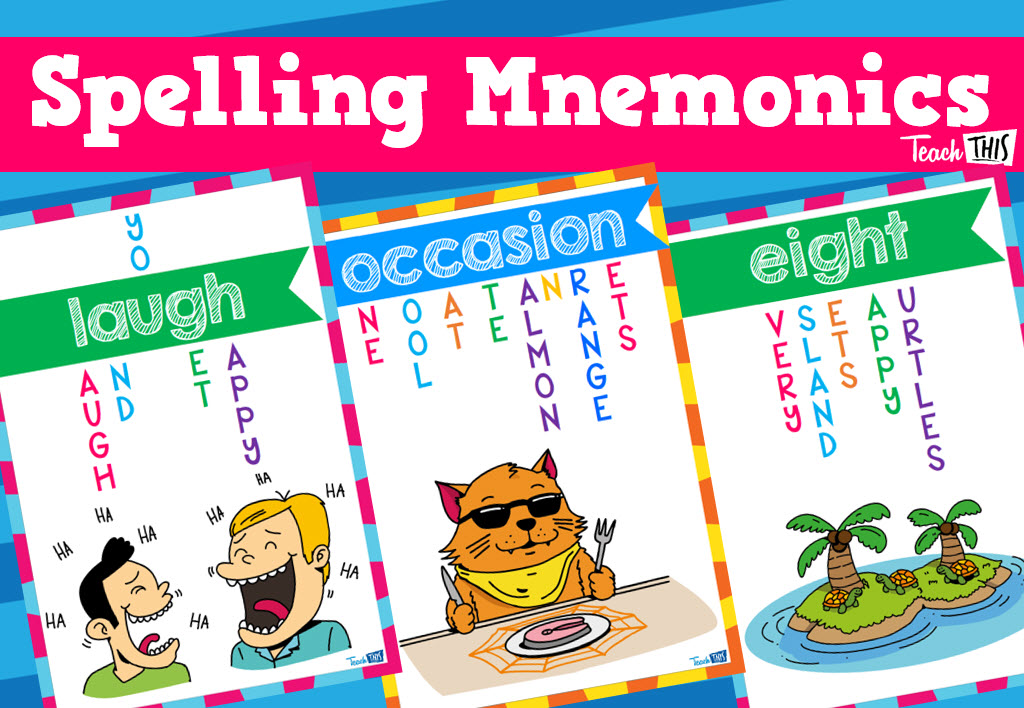
5. Spelling Swat It!
Divide students into two teams. Write the spelling words randomly onto the whiteboard.
Stand the first two players, with their backs to the board, a short distance in front of it. Give them each a plastic fly swat.
Call out a clue to identify the spelling word. For example, “This word means…” or “Rhymes with …” The two players must then race to be the first to swat the correct word on the board. The winner must then turn away from the board and spell the word correctly to win a point for their team.
6. Spelling Word Relay
Divide the students into teams. Each team lines up a short distance away from the whiteboard, facing the board. The first person in each team starts with a whiteboard marker.Call a word for the students to spell. The first student in each team races to the board and writes the first letter of the word and then runs back to pass the marker on to the next team member who writes the next letter of the word, and so on.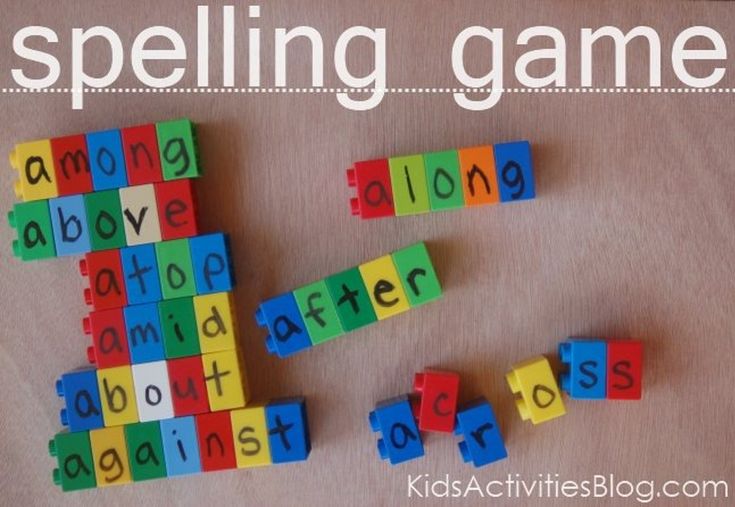 Team members can correct an incorrect letter on their turn but they may not add a new letter. The first team to correctly spell the word scores a point.7. Spelling Who Am I?
Team members can correct an incorrect letter on their turn but they may not add a new letter. The first team to correctly spell the word scores a point.7. Spelling Who Am I?
Write each spelling list word onto a post-it note. Divide students into two teams. The first student from the first team sits on a chair at the front of the room, facing the rest of her team. Place the first post-it note onto the student’s forehead. The goal is for the chosen student’s teammates to give him or her clues to what the word on his forehead is, without revealing the word directly. They can use rhyming words, synonyms, antonyms, guestures, etc. After they guess the word correctly, the student then has to spell the word. If they spell the word correctly, they score a point for their team. Repeat with the first team member from the second team, and so on.
8. Unscramble
Line students up into two or three teams facing the class whiteboard. The first person in each team has a personal whiteboard and a whiteboard marker and an eraser and turns to face away from the class whiteboard.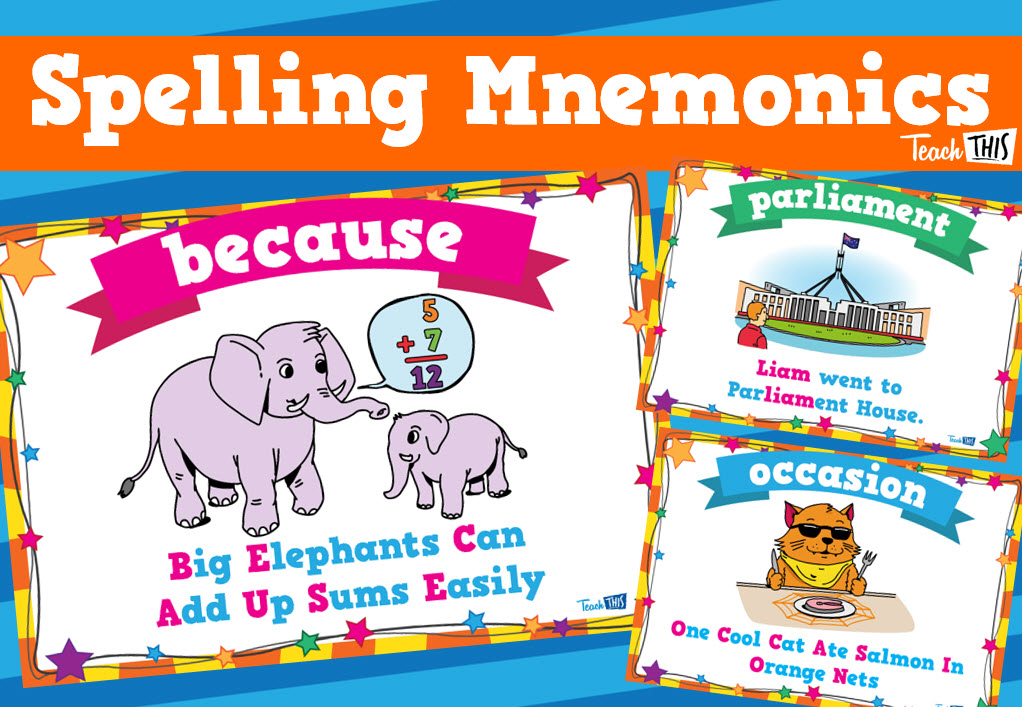 Write a jumbled version of the first spelling word on the class whiteboard. On ‘Go!’ the team members turn to face the board. The first of these students to write the unjumbled word (spelled correctly) onto their personal whiteboard and holds it up to the teacher wins a point for their team. They then pass the whiteboard onto the next team member and play continues with a new jumbled word for each round.
Write a jumbled version of the first spelling word on the class whiteboard. On ‘Go!’ the team members turn to face the board. The first of these students to write the unjumbled word (spelled correctly) onto their personal whiteboard and holds it up to the teacher wins a point for their team. They then pass the whiteboard onto the next team member and play continues with a new jumbled word for each round.
9. Missing Letters
Played in the same manner as Unscramble but the words are written onto the classroom whiteboard with blank lines in the place of some of the letters. For example, b_c_ _se for the word because.
10. Invisible Man
Line students up into two teams facing the whiteboard. Draw two large stick people on the whiteboard, one in front of each team, each must have the same number of body parts. Call out a word for the first member of team one to spell. If they spell it correctly they may erase one body part from the other team’s stick person.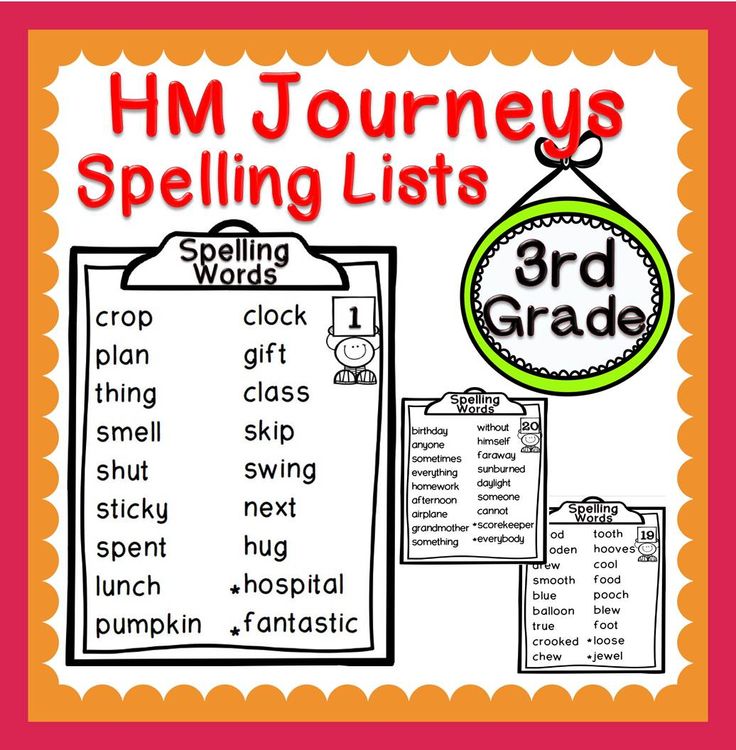 Call out a word for the first member of team two to spell, and continue on until one team’s stick person is completely erased. The erasing team is the winner!
Call out a word for the first member of team two to spell, and continue on until one team’s stick person is completely erased. The erasing team is the winner!
11. Spell-O
Each student chooses five spelling words and writes them onto a piece of paper. Write the alphabet in large print across the whiteboard. Cross out the letters of the alphabet, one by one. As each letter is crossed out, students cross out that same letter as it appears in each of their own words. First student to cross out all of the letters in all of their words wins.
12. Dictionary Challenge
This game works best with students in the upper elementary/primary grades. Divide students into teams. Each team will need a dictionary. Students choose a player from their team to go first. Call out a word. The elected students from each team race to be the first to find the word in the dictionary. The person who succeeds scores a point for their team. The dictionary is then passed to the next person in each team and the process repeated.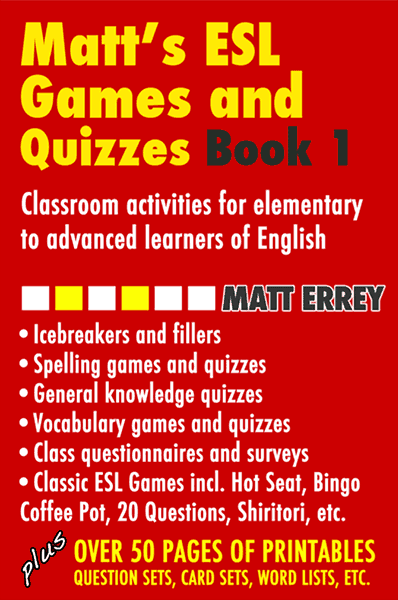
Christie Burnett is a teacher, presenter, writer and the mother of two. She created Childhood 101 as a place for teachers and parents to access engaging, high quality learning ideas.
Classroom Games that Incorporate Spelling
Teachers know that one of the things students dislike the most is studying for a spelling test. Memorizing spelling words can be boring, and oftentimes students tend to forget how to spell the words soon after the test is over. Classroom games incorporating spelling provide students with a fun way to learn words, they help students remember words over a longer period of time, and they give students an understanding of how words are formed.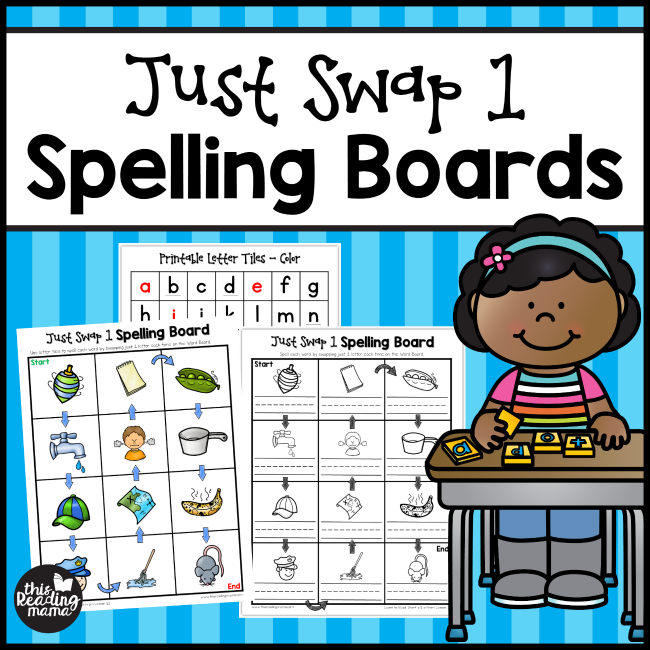 Incorporating classroom games about spelling into your weekly schedule will not only reinforce words that students need to learn, but they will also reinforce good spelling study habits.
Incorporating classroom games about spelling into your weekly schedule will not only reinforce words that students need to learn, but they will also reinforce good spelling study habits.
Here are a few fun classroom games about spelling to incorporate into your weekly lessons.
Spelling Word Relay
Word relay is a fun and competitive spelling game for all ages.
How to Play:
Divide students into two teams. Have each team stand in a line (just like you would in a relay race) one behind the other. When the teacher says go, the first team member of each team races to the board and has to write a spelling word that begins with the last letter of the word that was written on the board. For example, the teacher would draw a line down the center of the board and on each side would write one word. For this example the word is “clock.” The team member that is at the board would have to write a spelling word that starts with a “k” such as knock. If they do not have a spelling word that starts with a “k,” then they move to the letter before, which in this example would be “c.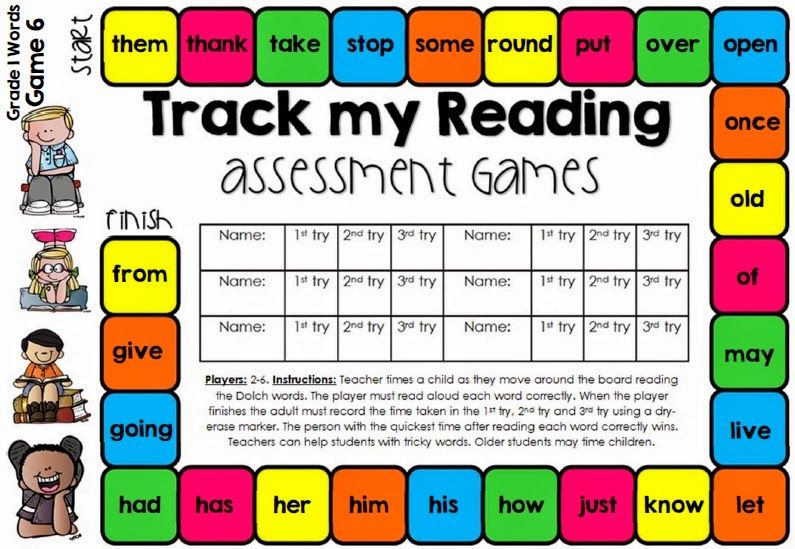 ” Once the team member writes the word they quickly pass the chalk or marker to the next person on the team, and so on, until all of the members have gone. The first team to finish wins!
” Once the team member writes the word they quickly pass the chalk or marker to the next person on the team, and so on, until all of the members have gone. The first team to finish wins!
Sink and Spell
Sink and spell is just like the game Battleship. It is a fun spelling game that is played with a partner to help reinforce spelling words.
How to Play:
Pair students together and give each student a sheet of paper. Have students draw a grid with letters on the top and numbers on the side. Then have students write about five of their spelling words in boxes on the grid they made. Students take turns calling out boxes. If they call out a box and a letter isn’t there then that is considered a miss. The goal of the game is to find the spelling words. The first one to find all of the words wins.
Spelling Squares (Tic Tac Toe)
This is a Tic Tac Toe spelling game to help reinforce spelling words.
How to Play:
Divide students into teams of two.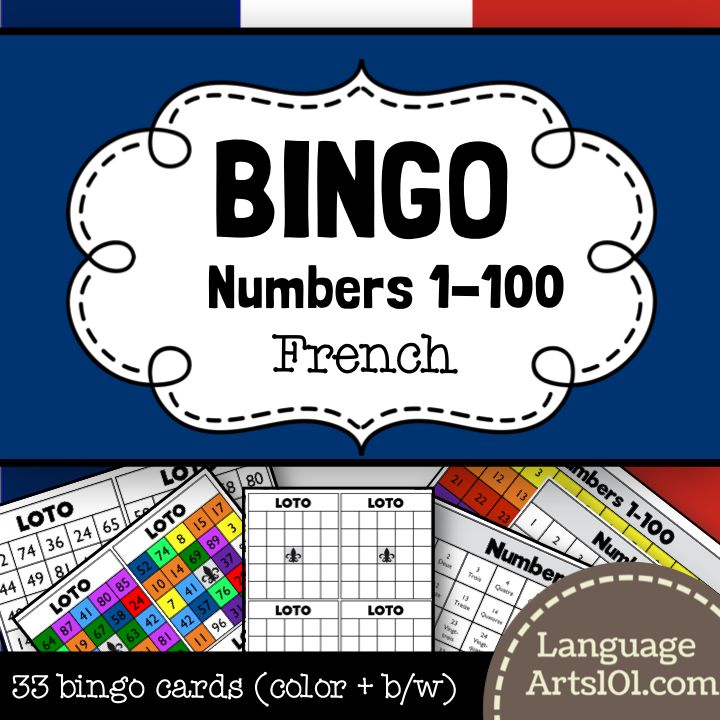 Each team gets a pile of their spelling words, along with a tic tac toe board. The first player draws a card from the deck and reads the word to their partner. The partner then spells the word. If they get it correct they draw an “x” or an “o” on the tic tac toe board. If they get it wrong then they cannot place anything on the board. Then the next player goes, and so on. This continues until someone gets tic tac toe.
Each team gets a pile of their spelling words, along with a tic tac toe board. The first player draws a card from the deck and reads the word to their partner. The partner then spells the word. If they get it correct they draw an “x” or an “o” on the tic tac toe board. If they get it wrong then they cannot place anything on the board. Then the next player goes, and so on. This continues until someone gets tic tac toe.
Spelling Boom!
Spelling Boom is a fun hands-on spelling game to reinforce spelling words. This game can be played with a partner, in a large group, or with a small group.
How to Play:
To play Spelling Boom you must write spelling words on popsicle sticks or small index cards. Make sure to write the word “Boom” on a few of the sticks or cards. Each player blindly draws a stick or card and hands it to the teacher or another player to read the word. If they spell the word correctly they get to keep the stick or card. If they answer it incorrectly then they must put it back into the cup or pile.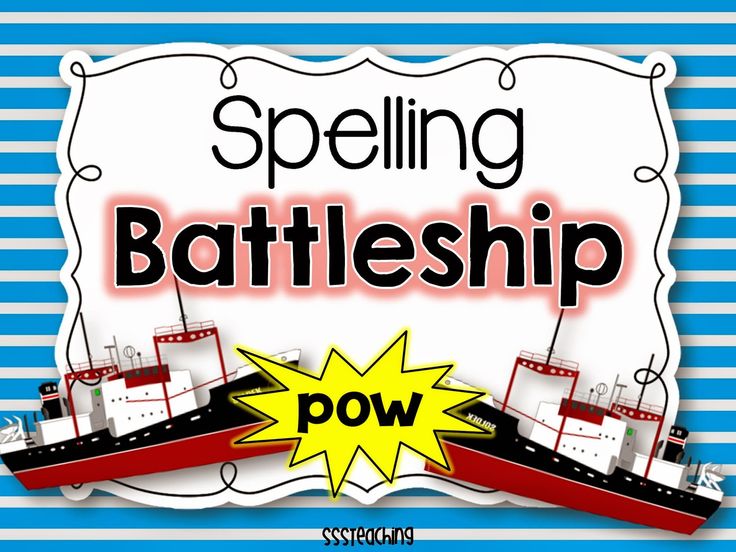 If the student chooses a Boom stick or card they must put back all of the words that they have collected so far. The person with the most sticks or cards at the end of the game wins!
If the student chooses a Boom stick or card they must put back all of the words that they have collected so far. The person with the most sticks or cards at the end of the game wins!
Word Jump
Word jump is a physical classroom spelling game to help students remember their spelling words.
How to Play:
The teacher writes a few spelling words on a piece of paper and places them on the floor. The goal is to have students see how many words they can jump on correctly when the teacher says the word. For example, the teacher would say the word “fox” and students would look on the ground and have to be the first to jump on that word.
Try and incorporate as many classroom spelling games into your weekly schedule as you possibly can. Not only are they beneficial for students, but they give students something to look forward to. Games are fun!
Spelling games | Educational and methodological material on the Russian language on the topic:
SPELLING GAMES.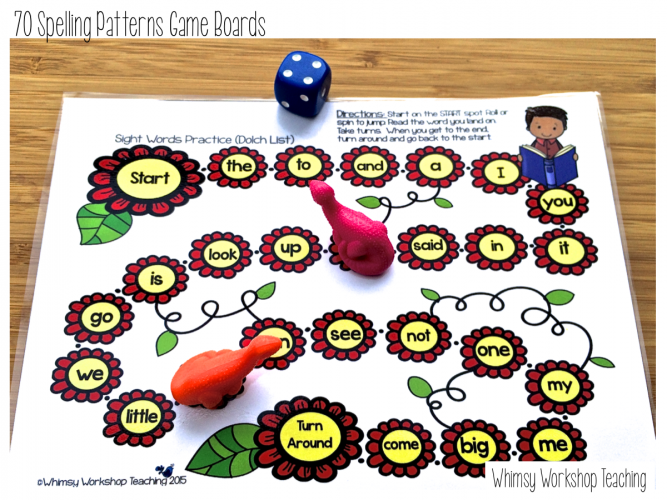
1.Check Dunno.
Dunno played with words, making one word out of two. Check if he
composed the words correctly?
Paul+Osa = stripes
Kol+Osa = colosses
OG+Wasp-fits
Tooth+I = teeth
oak+b+I = Dubya
2. Who quickly correct the errors. (Subject: Capital letter)
The cards have misspelled text.
Task: Find and correct all capitalization errors as quickly as possible.
3. Read the offer. (Topic: Case endings.)
Cards are made from an album sheet on which sentences are written, but instead of nouns, the corresponding figures are placed.
Assignment: while reading a sentence, students use pictures to name nouns in the appropriate case, choosing the correct ending.
4. "Choose three words" (The game is used to reinforce any topics in the Russian language)
Purpose: To follow the formation of spelling skills, taking into account the stage of work on spelling.
The choice of words depends on the topics studied or covered.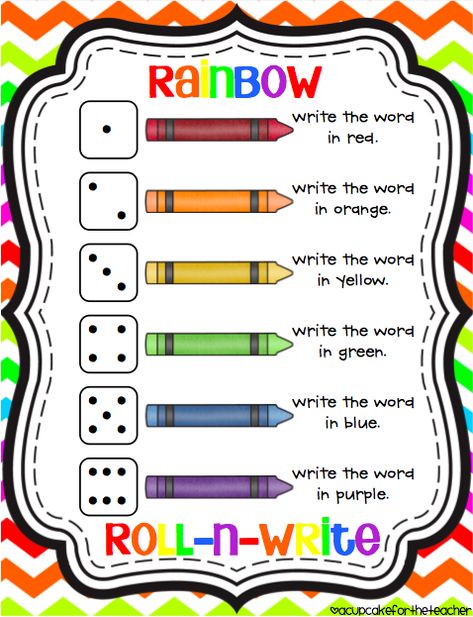
Nine words are written on 9 cards:
1st set: fish, blizzard, stocking, oak trees, jam, scarecrow, streams, plague, mushroom.
2nd set: entrance, warehouse, crow, hail, filming, treasure, gate, rise, sparrow.
Bread
CLU-KA
Kali-Ka
Bere-kiki
FILKI
Obl-ki
Pied KI
Marty-ka
Redi-ka
Du-ki
Lo-ki
Tetra-KA
CLA
Tra-
Carko-Ka
Li-KI
Ostro-oki
Promotion-KA
Blue 9000 9000
Refined
Tasks:
Explain spellings by choosing test words.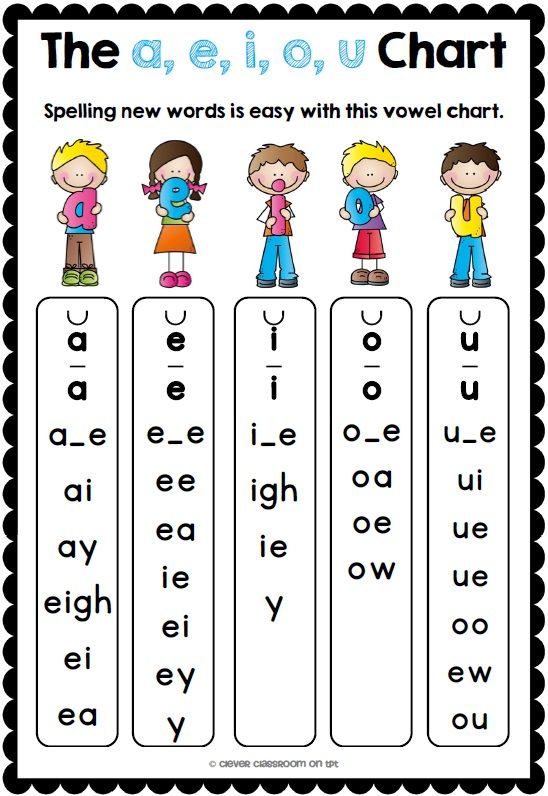
6. Game "Ball"
Didactic task: Repeat the formulation of clarifying questions and case endings.
Game objective: Help the proposals get to the Ball.
Contents of the game:
Ball in the Grammar Kingdom today. There were many proposals for it. But the sentinel will not let them into the palace until each noun from those who have appeared has its conjugation indicated. Help the proposals get to the Ball. What questions does the clock noun ask?
Materials:
A table is drawn on the board, the halves of which are separated by a sentry. The proposal is analyzed by one student, tips from the class are accepted.
Cherry blossoms in May Mother gave her son a book Swallows are returning from Africa A hare feeds on tree bark Sister came to her brother Sasha wrote a letter A fox hid behind a bush, etc. H a s o v o y In (what?) May blooms (what?) bird cherry. etc.
7. Game "Find the ending"
Didactic task: Repeat the case endings of nouns.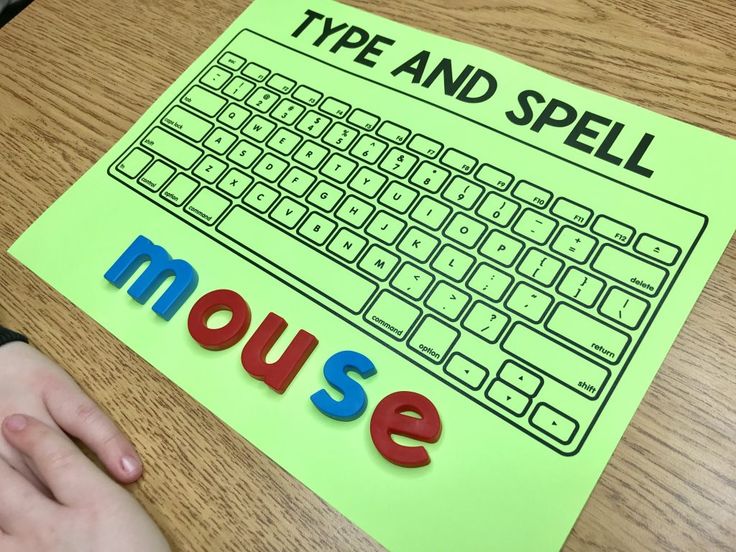
Game task: Find the endings of some words in sayings.
Content of the game:
“The ending is a very changeable, moving part of a word. She can easily get lost. Find the lost endings for these proverbs.”
Materials:
Cards
- Pick the berries... you will find the box.
- Drop by drop... and the stone hammers.
Without a primer and grammar... Mathematics cannot be learned...
8. The game "Nicknames"
Purpose: formation of the process of inflection and word formation, consolidation of phonetic and grammatical analysis of words, spelling of proper names.
Move: Form animal names from the following words:
BALL, ARROW, EAGLE, RED, STAR
Make proposals.
BALL, ARROW, EAGLE, GINGER, STAR
Highlight the part of the word that you used when composing nicknames (suffix, ending).
9. Game "Team chain game"
Didactic task: Complete the appropriate nouns in the accusative case.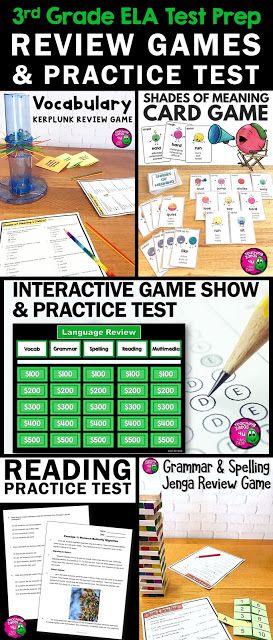
Game objective: Make the chain as long as possible.
Contents of the game and Materials:
- Listening to music, mom...
- I am writing a dictation, a letter,...
- They are building a tower, a house,... etc.
10. The game "Hard - soft"
Purpose: to create conditions for repeating the spelling of hard and soft signs.
Students are divided into two teams. One team is called “Stone”, the other is called “Water”. The “Stone” team gets up if I read a word with a hard sign, if I read a word with a soft sign, the “Water” team gets up.
Words: congress, drive in, blizzard, pours, entrance, pour, announcement, stakes, runners, detour, ears of corn, drink, shooting, etc.
11.Game: Be careful.
Purpose: to activate memory, attention, vocabulary, based on knowledge of the rules.
Write out from the proposed poems with combinations of zhi, shi:
1. Siskins lived in a hut,
Mice, hedgehogs, swifts,
Walruses come to visit them
Both giraffes and snakes.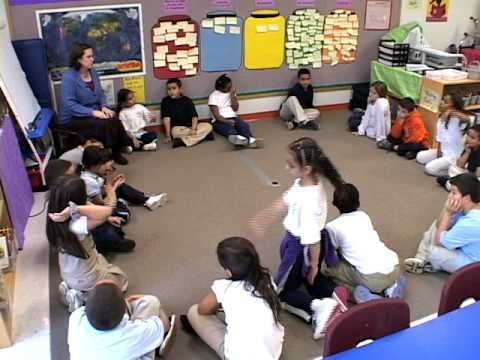
2. Vest, animal, belly,
Giraffes, painting, lives,
Briar, tires, reeds,
Cars and pencils,
Circle, serve, be friends and live,
Hurry, make laugh,
Hiss and sew.
All combinations of ZhI and SHI
Only with the letter I write!
12. Game: Slovoznaikin, give me an answer.
Purpose: to determine the level of development of children, to develop memory, thinking, speech.
Children are invited for a certain time to remember and write down as many proverbs and sayings, riddles and quatrains as possible, in which words and a given rule are found - "Spelling of words with combinations of zhi, shi." For example:
Proverbs and sayings:
Life is given for good deeds.
You can't hide an awl in a bag.
If you hurry, you will make people laugh.
To live life is not a field to cross.
Friendship is like glass, if you break it, you won't stick it together.
Riddles:
Two birch horses
They carry me through the forest.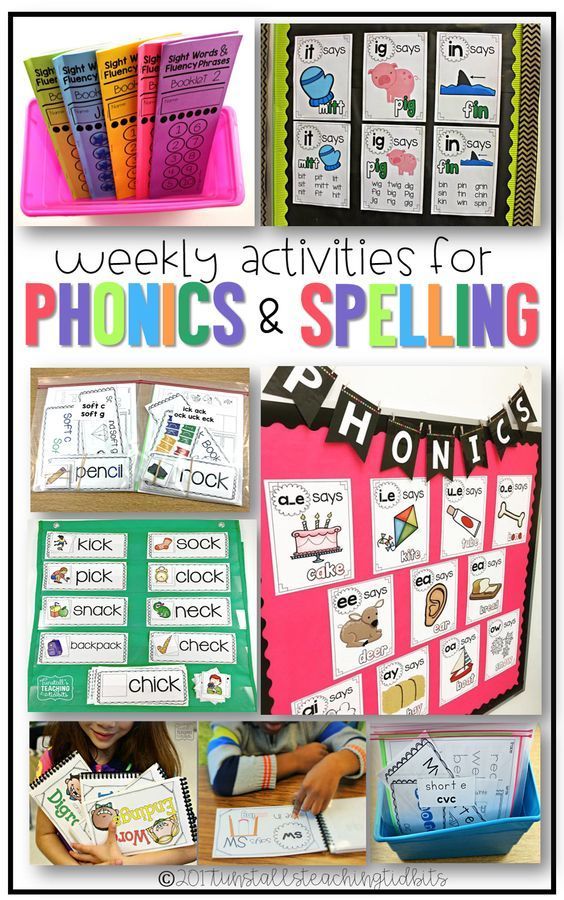
These red horses,
And their name is ... (skis).
He is tall and spotted
With a long, long neck,
And he eats leaves,
Leaves of trees (giraffe)
Quatrain:
She sewed a fur coat - she sewed a skirt,
She sewed a hat - she sewed a slipper!
Good seamstress Natasha!
13. Game: Change the letter.
Purpose: to intensify the mental activity of students, develop spelling and phonetic vigilance, attentiveness, logical thinking.
Children are offered the original word with a spelling, they change either one or two sounds in it sequentially, while maintaining the combination -chk-, and receive new words. The one with the most words wins.
daughter pen
barrel river
night candle
bump stove
point kidney
cloud daughter
wheelbarrow night
14. Game: Name one object.
Purpose: to develop methods for checking unstressed vowels.
The teacher says a word denoting many identical objects, and the students name one such object and explain what vowel should be written in the root of the word.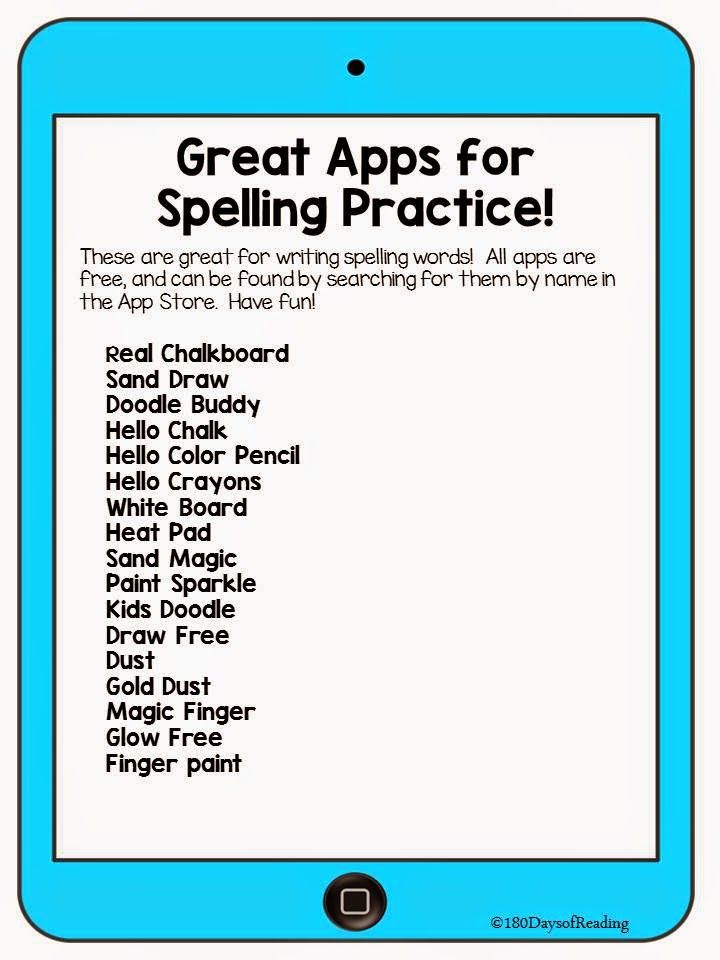 For a correct answer, the row receives a point. The winner is determined by the number of points.
For a correct answer, the row receives a point. The winner is determined by the number of points.
Sample material: words: doctors, eyes, rooks, gardens, basins, balls, sides, rains, yards, moles, seas, knives, fruits, fields, horns, etc.
15. Game: Capital letter.
Purpose: to reinforce the rule of capitalization in words.
Equipment: each student has a set of signal cards.
The teacher invites the class to listen carefully to the poem. Then the students mark with signal cards, all the rules for writing a capital letter, which are mentioned in the poem. Next, you need to protect each of your answers, that is, explain which rule is fixed. The winner is the one who manages to protect all signal cards.
An ordinary letter has suddenly grown, The letter
Has grown above the letters - girlfriends At the line at the beginning,
They look with respect So that we notice the beginning.
In the letter of a friend, First name, last name
But why? Are written with her,
For what merits? To be more noticeable and more visible,
To sound loud and proud
The letter did not want to grow by itself, Your name
The letter is entrusted with an important task: The name of the street, city.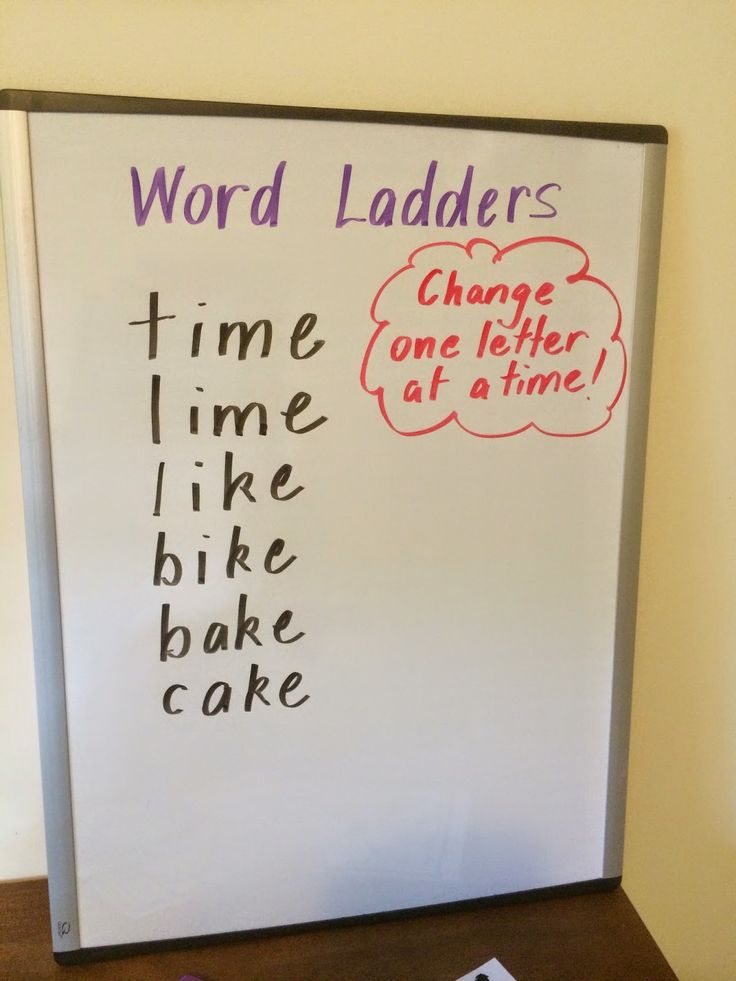
Put in the word Large letter -
Not in vain and not easy Not at all empty,
The letter is so tall.
In a big letter -
Respect sign. (S. Izmailov)
16. Game: Half a minute for a joke.
Purpose: to fix the spelling of the capital letter in animal names.
Equipment: the board contains the names of those animals that are found in Yu. Chernykh's poem: a dog, a chicken, a cow, a cat, a horse.
The teacher asks the children to listen carefully to the poem and say what is wrong with it. The correct answer is rewarded with a game token. Some children add nicknames to the names of animals on the board, while the rest do this work in a notebook.
Once upon a time there was a grandfather and a woman
With a little granddaughter.
They called their red cat
Zhuchka,
And they called Crested
They called the foal,
And they also had
Burenka hen,
Murka dog,
And two more goats -
Sivka and Burka.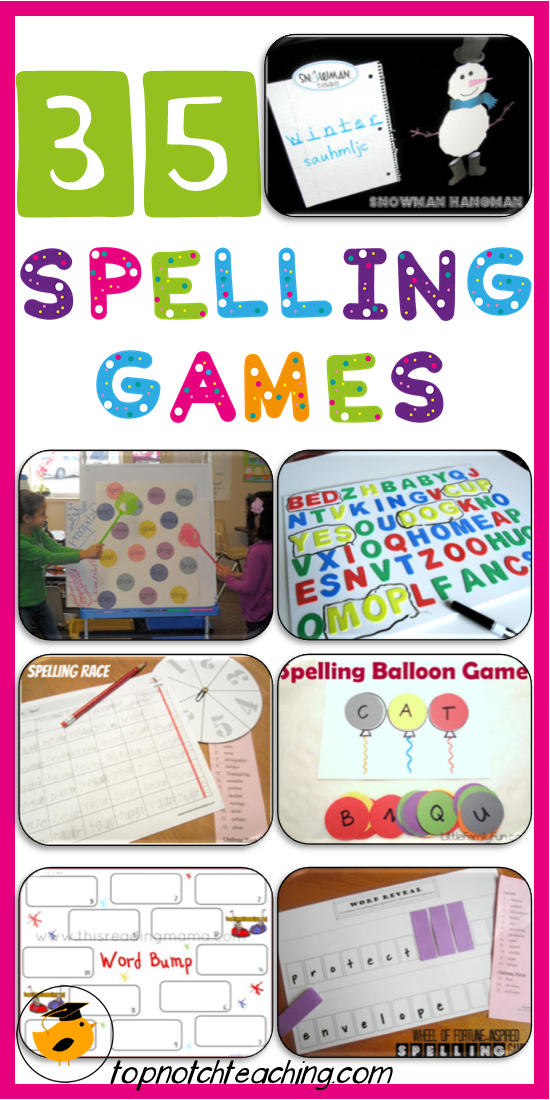
17. Didactic game "Be careful."
Purpose: to activate memory, attention, vocabulary, based on knowledge of the rules.
From the proposed poems write out words with combinations of zhi, shi:
1. They lived in a hut of siskins,
Mice, hedgehogs, swifts,
Walruses come to visit them
And giraffes and snakes.
2. Vest, animal, belly,
Giraffes, painting, lives,
Briar, tires, reeds,
Cars and pencils,
Circle, serve, make friends and live,
Hurry, make laugh,
Hiss and sew.
All combinations of ZhI and SHI
Only with the letter I write!
CHAPTER I . Spelling games and games for spelling vigilance - Megatutorial
Contents
Introduction………………………………………………………………………..2
CHAPTER I. Spelling games and games for spelling vigilance
1.1 Spelling games……… …………………………………………5
1.2 Spelling vigilance………………………………………………..9
1.3 Conclusion by chapter……… ………………………………………………….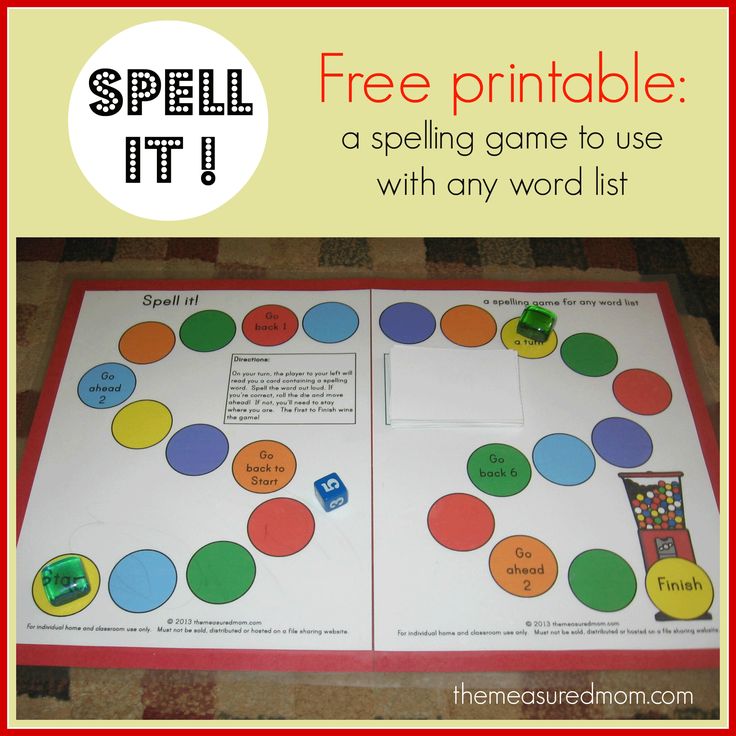 .14
.14
.
One of the reasons for the insufficiently high spelling literacy of younger students is the lack of formation of their spelling vigilance, i.e. inability to "see" spelling.
In a modern school, the main task of teaching the Russian language to junior schoolchildren is the formation of spelling literacy. It is one of the components of the general language culture, ensuring the accuracy of the expression of thought and mutual understanding in written communication.
From the practice of teaching in the primary grades, it is known that the spelling literacy of students does not reach a sufficiently high level, as evidenced by the results of the final tests in the Russian language held in grades 3-4.
This quality of literacy causes anxiety among teachers and parents . In the upper grades, the literacy of students has definitely decreased (although in the primary grades it has remained at the same level, but has not increased over the past two decades).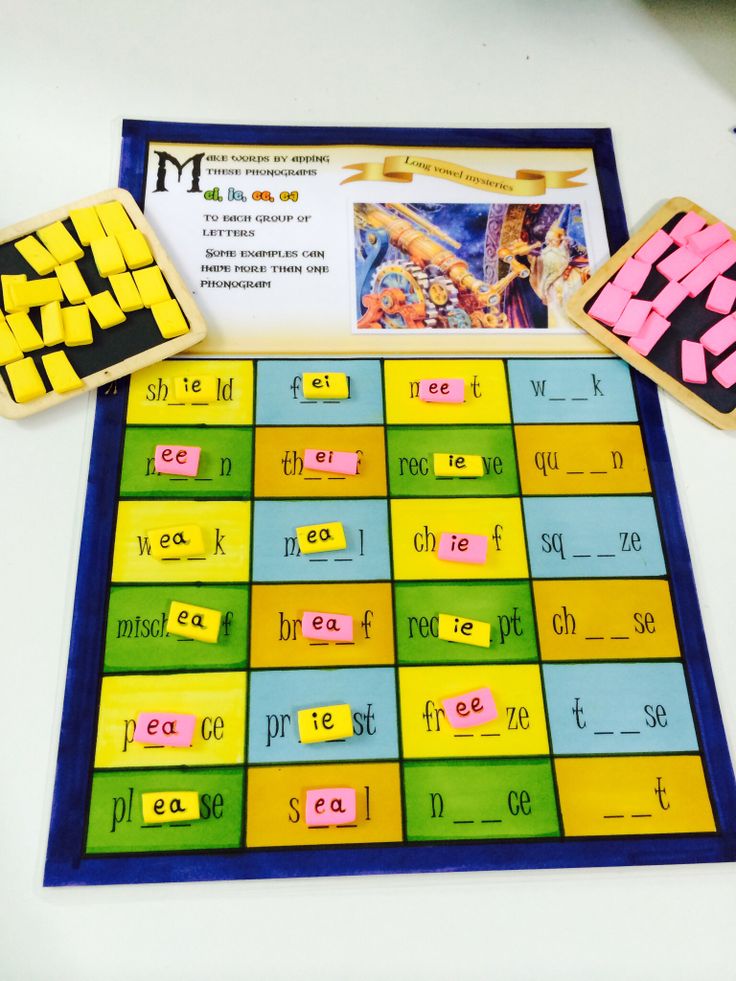
Therefore, scientists (psychologists, methodologists), teachers are looking for the reasons for this phenomenon (low spelling literacy) in order to take effective measures to improve the situation in this component of education. [3, p. 276]
inability to "see" spelling.
The method of teaching spelling is not perfect: it does not provide for special training aimed at developing spelling vigilance.
The study of the state of spelling vigilance of primary school students showed that the percentage of spelling vision by younger students is low. This state of affairs in elementary school stems, firstly, from the lack of unity of views on the nature of Russian spelling, on the principles underlying it. (At present, two theoretical concepts of Russian spelling have been clearly defined: morphological and phonemic), and secondly, because of the lack of development of a scientifically based system for the formation of spelling vigilance in younger students.
The relevance of this topic lies in the fact that the first steps towards learning the Russian language are always the most difficult.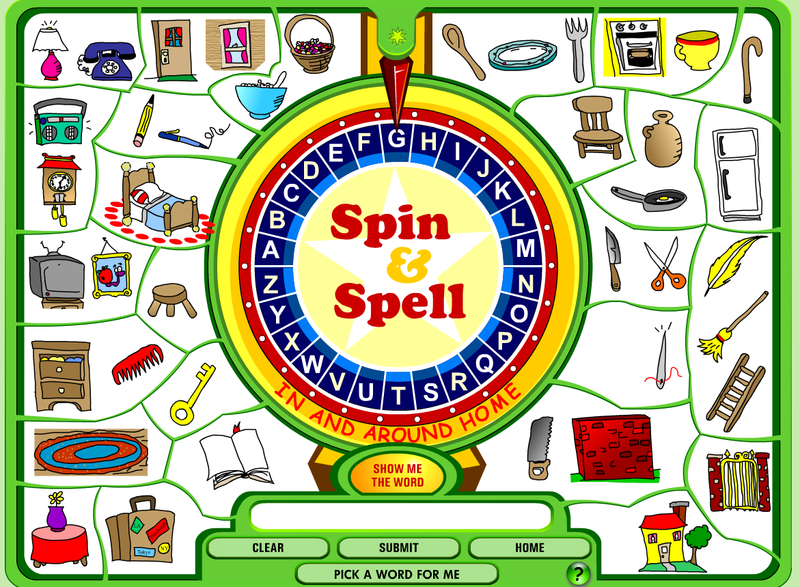 From how the basics of spelling literacy will be formed at the initial stage of education, the further successful learning of any school discipline largely depends. In the practice of elementary school, different manuals are used. Therefore, it is necessary to understand not only general approaches to teaching spelling, but also take into account the specifics of each system, program, textbook. The object of the research is the process of teaching the Russian language to junior schoolchildren, aimed at improving spelling literacy.
From how the basics of spelling literacy will be formed at the initial stage of education, the further successful learning of any school discipline largely depends. In the practice of elementary school, different manuals are used. Therefore, it is necessary to understand not only general approaches to teaching spelling, but also take into account the specifics of each system, program, textbook. The object of the research is the process of teaching the Russian language to junior schoolchildren, aimed at improving spelling literacy.
The research problem lies in the fact that the primary school teacher needs to use the most effective methods and techniques of developing the spelling vigilance of younger students in the Russian language lessons.
Purpose: to study the features of the formation of spelling vigilance in the Russian language lessons in elementary school; identification of the most effective methods and techniques for the formation of spelling vigilance of younger students in the Russian language lessons.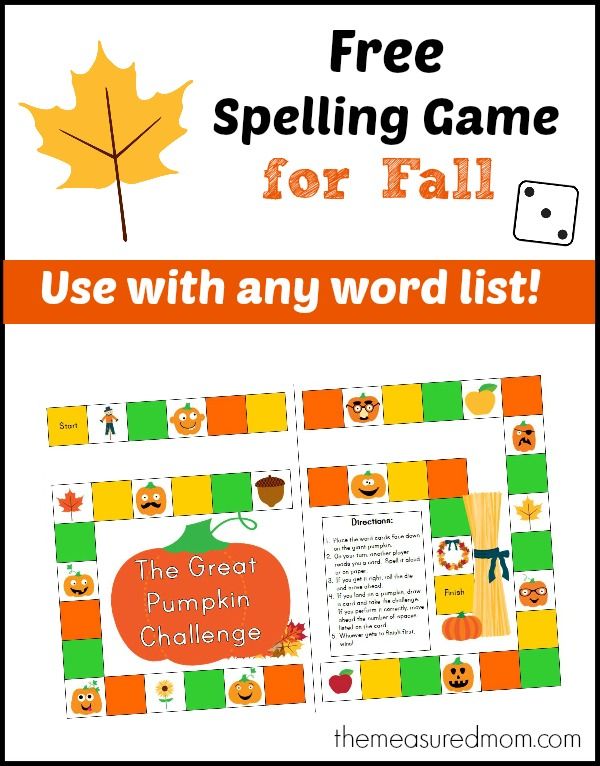
Object: spelling vigilance.
Subject: methods and techniques for the formation of spelling vigilance in Russian language lessons in elementary school.
Hypothesis: the formation of spelling vigilance of younger schoolchildren in the Russian language lessons in elementary school is possible under the following conditions:
- subject to systematic and systematic work on the formation of spelling vigilance;
- when using traditional (dictations, presentations) and modern (testing, information and communication technologies) methods of forming spelling vigilance.
To achieve the goal of the study, it is necessary to solve the following tasks:
- to reveal the concept of spelling vigilance;
- to consider the stages of formation of spelling vigilance of younger students in the Russian language lessons;
- to study the methods and techniques of the formation of spelling vigilance in the lessons of the Russian language in elementary school;
- to identify the level of formation of spelling vigilance of younger students
Research methods:
1.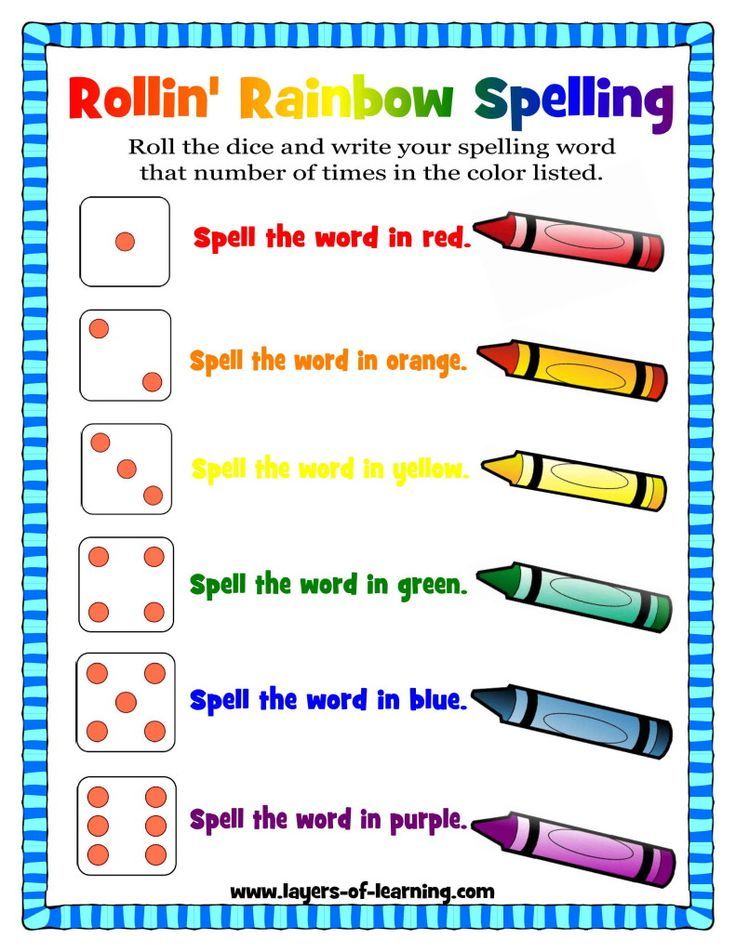 Theoretical research methods: analysis of literary sources, comparison, systematization, generalization.
Theoretical research methods: analysis of literary sources, comparison, systematization, generalization.
2. Empirical research methods: testing, questioning, pedagogical experiment, observation.
3. Mathematical methods for processing research data.
Research base: Udmurt Republic, Uvinsky district, Nylginskaya secondary school, 3rd grade students.
CHAPTER I . Spelling and spelling games
Spelling games
Along with work and learning, play is one of the main types of human activity, an amazing phenomenon of our existence. By definition, a game is a type of activity in situations aimed at recreating and assimilating social experience, in which self-management of behavior is formed and improved. The value of the game cannot be exhausted. Its phenomenon lies in the fact that, being entertainment, recreation, it is able to grow into education, creativity, therapy, a model of the type of human relations and manifestations in work, education.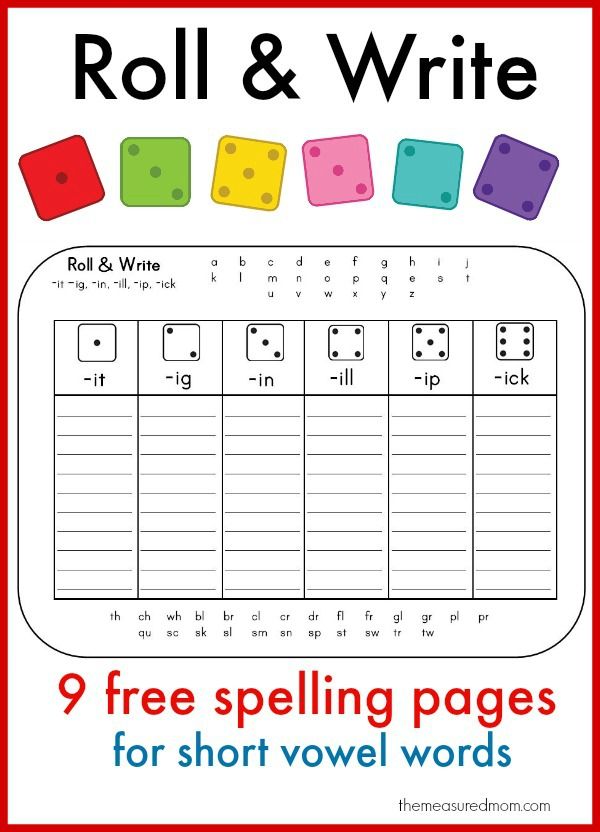
A huge role in the development and upbringing of the child belongs to the game - the most important type of activity.
The themes of the game in the pedagogical process are very relevant, because. the game is the most powerful sphere of the "self" of a person: self-expression, self-determination, self-examination, self-rehabilitation, self-existence. Thanks to games, the child learns to trust himself and all people, to recognize what should be accepted and what should be rejected in the world around him.
The study of the development of children shows that in the game more effectively than in other types of activity, all psychological processes develop. The changes in the child's psyche caused by play are so significant that psychology has established a view of play as the leading activity of children during preschool childhood. [1, p.154]
There is a branch of medicine and psychology called play therapy. The game can diagnose, to know the child. The game can encourage and approve the child.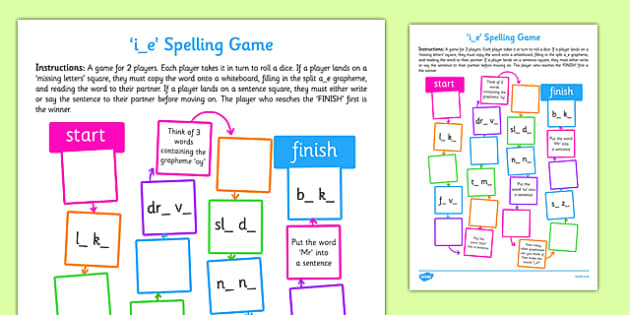 With the help of the game, you can correct, improve, develop important psychological properties in children.
With the help of the game, you can correct, improve, develop important psychological properties in children.
Playing is the most mastered activity by kids. In it, they draw models for solving new life problems that have arisen in knowledge, in work, in creativity. Therefore, relying on the game is the most important way to include children in educational work without psychological shifts and overloads.
Thus, the game is the main activity of the child. This is a free and independent activity that occurs at the initiative of the child. The whole personality of the child is involved in the game process: cognitive processes, will, feelings, emotions, needs, interests. As a result, amazing changes occur in this personality. The game is a very specific type of activity, which has all the characteristics of the activity, but all of them are special.
The ability to imagine, imaginative thinking develops in the game. This happens due to the fact that in the game the child seeks to recreate broad spheres of the surrounding reality that go beyond the limits of his own practical activity, and he can do this with the help of conditional actions.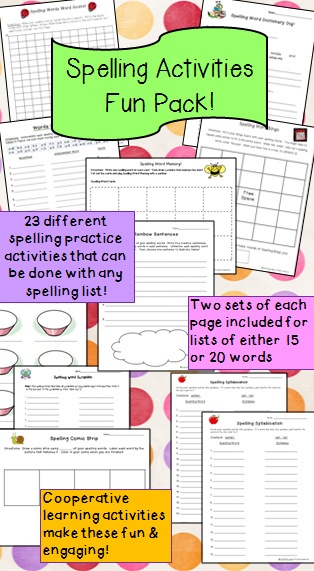
In play, the child also gains experience of voluntary behavior, learns to control himself, observing the rules of the game, restraining his immediate desires in order to maintain joint play.
Let us turn to the game as a pedagogical category. Since the game occupies a huge place in development, it has long been used as a pedagogical tool. So in the lessons of the Russian language, spelling games are used to develop spelling vigilance.
Spelling games are games that help develop spelling and correct writing skills.
Spelling games are a good tool for the formation of spelling skills in younger students in the Russian language lessons, they are able to attract the attention of students, instill in them a love for this complex subject. But you need to use them skillfully, use the games in the system without missing the essence of the lesson, and not give the game the character of an ordinary exercise. [9, p.34]
Teaching spelling in primary school is always one of the most important tasks.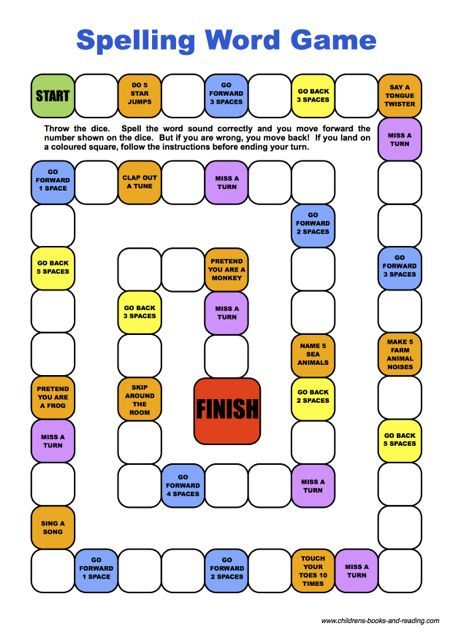 When preparing for a Russian language lesson, the teacher faces questions: how to help the student write correctly? how to form spelling vigilance and achieve high-quality results in students of spelling rules. [16, p.92]
When preparing for a Russian language lesson, the teacher faces questions: how to help the student write correctly? how to form spelling vigilance and achieve high-quality results in students of spelling rules. [16, p.92]
Spelling games help in the implementation of this problem, allowing you to see and perceive spelling rules, algorithms for their application, methods for checking spelling.
The game allows the student to develop the ability to self-determination, to be included in educational activities and forms of communication with other people. It teaches learning independence, forms the ability to study with a desire, to perform introspection of one's own life. The game allows you to provide the right number of repetitions on different materials. And this is self-development based on the subconscious, mind and creativity. The use of spelling games helps to increase the strength and quality of knowledge acquisition, learning motivation, interest in the subject. The spelling game should correspond to the content of the topic being studied, the goals and objectives of the lesson.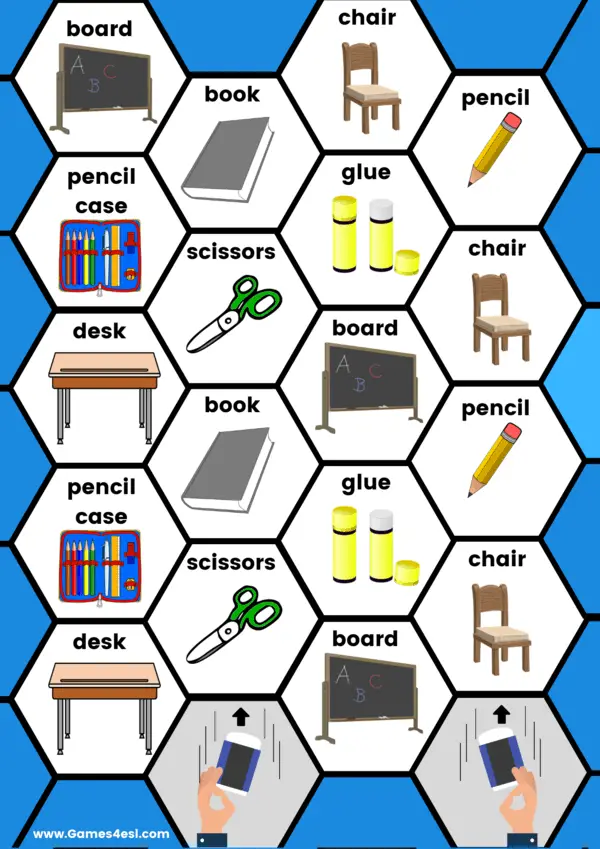
It is impossible not to note the educational value of spelling games. They bring up goodwill, initiative, efficiency in students; stimulate and activate cognitive processes: thinking, memory, imagination; create conditions for the formation of positive motivation for educational activities, which contributes to improving the quality of students' knowledge.
It should be remembered that the formation of spelling literacy depends on the level of spelling vigilance, on the ability to find spellings, identify them and carry out self-checking of what is written. Spelling vigilance develops as a result of purposeful, systematic exercises that ensure the perception and memorization of spellings. Students must know the rule and the algorithm for its application.
I offer several games.
“The most attentive”
Write down the sentences written on the cards, using capital letters where necessary.
Purpose: development of active attention
Seryozha is not afraid of frost. Vitya Vasilkov picked up a bouquet of cornflowers. Ivanova field was returning from the field. Leva Starlings made a house for starlings.
Vitya Vasilkov picked up a bouquet of cornflowers. Ivanova field was returning from the field. Leva Starlings made a house for starlings.
"Necessary Nut"
Help the squirrel to get the right nuts - words (one squirrel collects words with an unstressed vowel a in the root, and the other - with o or i - e). Explain spelling.
Purpose: development of orthograms in words
Rain, trunks, kindness, starlings, path, wave, gatehouse, carpet, country, grass, steel, eye, shepherd, heat, ice rink, brave man.
"Put flowers in a vase"
Put flowers - words in a vase. In one vase - words with ь, in the other without ь. Explain spelling. Which vase has more flowers?
Purpose: ability to explain spelling in words
Help, lily of the valley, print, landscape, youth, broch., strongman, violinist, comrade..
"Wheel of prefixes"
Purpose: the ability to form new words with the help of prefixes
A wheel is depicted, prefixes are written in a circle on it.